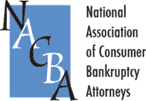
 The Supreme Court usually decides a few cases each term that have an impact on bankruptcy law, and this year is no exception. One of the decisions, Midland Funding, LLC v. Johnson, concerns the issue of stale debts and when they can be incorporated into a Fair Debt Collection Practices Act, as an unfair attempt to collect a debt. The court came down on the side of collection agencies in this case.
The Supreme Court usually decides a few cases each term that have an impact on bankruptcy law, and this year is no exception. One of the decisions, Midland Funding, LLC v. Johnson, concerns the issue of stale debts and when they can be incorporated into a Fair Debt Collection Practices Act, as an unfair attempt to collect a debt. The court came down on the side of collection agencies in this case.
The case began in 2014 when a woman from Alabama filed for a Chapter 13 bankruptcy in her local federal court under the U.S. Bankruptcy Code. As happens in all bankruptcy cases, all of her debtors were notified of the bankruptcy, and encouraged to file any claims they had on the estate. One of this woman’s creditors had a stale debt, but decided to file a claim anyway, hoping to receive something on her repayment plan which would be part of the Chapter 13 bankruptcy.
Statutes of Limitations in General
When one talks of stale debt, they are referring to the fact that the debt has expired past the state’s statute of limitations. Each state has its own statute of limitations on a collection of debt, and Alabama’s is six years. In this case, a company purchased the debt from the original claim holder, and attempted to collect on it, knowing it was expired. The trustee in this case recognized the debt was time barred, and it their claim was dismissed as untimely filed.
In most cases that would have been the end of the story, but not here. The woman’s legal team was upset that a company would file a claim to collect a debt in a bankruptcy action, knowing it was time-barred. As a result, they decided to file a counterclaim against the company, asserting it had violated the provisions of the FDCPA.
FDCPA and Debt
The FDCPA was passed by Congress as a way to curb what had become aggressive and problematic debt collection efforts. The main function of the FDCPA is to scare of unfair debt collection practices by threat of lawsuits and huge legal awards when a person or company tries to unfairly collect a debt. These laws also applied to people after they had begun a bankruptcy.
The question in this case, then, was whether the company trying to collect a stale debt violated the FDCPA. It came down to whether it was unfair of them to make a claim on a debt that had been time barred, and when they knew it was time barred. The Supreme Court ruled that it is not unfair to do so, and their ruling was not a close call by way of justices voting.
The court recognized that trying to collect a stale debt can be fruitless, but it is not unfair for a company to do so. If it were, the FDCPA or the Bankruptcy Code would have come out and banned the practice outright. As it stands, a stale debt is still a claim, even if it is unenforceable and time barred. As a result, companies will continue to buy up old debt, and try to enforce it at any juncture possible.
If you are contemplating filing for bankruptcy, we hope you will consider us at the Bankruptcy Law Center. Our team of top-notch attorneys and staff can help you understand what your options are, and guide you through your bankruptcy, no matter the chapter. Contact us today.
(image courtesy of Tristan Colangelo)









